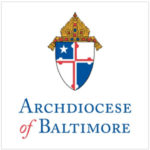The Archdiocese of Baltimore has made it an institutional priority to protect children in its care and restore the trust of the faithful by enacting and enforcing policies and practices that prevent future incidents of abuse, hold abusers accountable, create a culture of transparency, and promote healing for victims.
While the Archdiocese had child protection measures in place prior to the 2002 creation of the Charter for the Protection of Children & Young People, the landmark document that spells out the Catholic Church’s commitment to protecting children and young people, it has taken many additional steps since then to further strengthen the Archdiocese’s child protection efforts to create safe environments for children in our care, promote healing for victims, and to restore the trust of God’s people in the Archdiocese.
Prevention
The Archdiocese requires all employees (including bishops and clergy) and volunteers who have substantial contact with children to undergo strict background checks and screenings (over 137,000 to date), as well as rigorous training and education on abuse prevention and recognition. Tougher screening and formation is now in place for prospective priests, along with age-specific education for children enrolled in our schools and religious education programs. Approximately 42,000 children receive the abuse prevention education in the Archdiocese annually.
Accountability
The Archdiocese reports all allegations of abuse against children to the civil authorities and encourages others who may suspect abuse to do the same. Alleged abuse or neglect that occurred when the victim was under 18 years of age is reported, even if the victim is now over 18 years of age and even in cases when the alleged perpetrator is deceased.
This is Archdiocesan policy as well as Maryland law. The Archdiocese has a zero tolerance policy which prevents anyone credibly accused of child sexual abuse from ever again serving in any Church ministry. If the accused is a priest, he is also permanently barred from ever again publicly functioning as a priest in this or any other diocese.
Transparency
In 2002, the Archdiocese of Baltimore became the first Catholic diocese in the country to disclose the names of every priest and brother (including priests of other dioceses and of religious orders) who had been credibly accused of committing child sexual abuse and had served in the Archdiocese. It also disclosed the amount of money spent on litigation, settlements with victims, counseling expenses, and other related costs. Since then, the Archdiocese has consistently made public the names of those working or volunteering on behalf of the Church who have been credibly abused of child sexual abuse.
Healing
When the Archdiocese learns of an allegation of abuse by someone serving on behalf of the Church, after reporting the matter to civil authorities it immediately offers the victim an apology and offers the victim counseling assistance by a counselor of his/her choice for as long as it’s needed. This also applies to victims’ family members. Though not required by law, the Archdiocese provides this assistance and outreach because providing support to victims is an act of charity and love and is the right thing to do. The Archdiocese has paid more than $3.6 million in victim counseling and other therapeutic assistance, and additionally more than $8.4 million in direct payments to victims/survivors has been made since the 1980s through insurance-designated funds.
Over the past 13 years the Archdiocese has voluntarily participated in numerous external and independent audits of its child protection efforts and has been found to be in compliance in each audit. As well, the Archdiocese established an Independent Review Board, made up of individuals from the community—many of whom are not Catholic—to review the Church’s handling of abuse allegations.
The 2002 revelations of the child sexual abuse crisis in the Catholic Church were enormously painful and damaging for a lot of people and for the Church. They were also the impetus for the Church—at every level—to fully commit herself to ridding its churches, schools, and other ministries of anyone who would harm a child, whether through acts of commission or omission. In spite of the passage of time and evidence that suggests the Church is safe for those in her care, we must never forget the pain of our actions and inactions or the damage that they caused. These painful memories must guide our unwavering vigilance and steadfast commitment to the safety of children that will prevent us from ever again repeating the sins of the past.
The Archdiocese of Baltimore is committed to protecting children and helping to heal victims of abuse. We urge anyone who has any knowledge of any child sexual abuse to come forward, and to report it immediately to civil authorities. If clergy or other Church personnel are suspected of committing the abuse, we ask that you also call the Archdiocesan Office of Child and Youth Protection Hotline at 1-866-417-7469.

